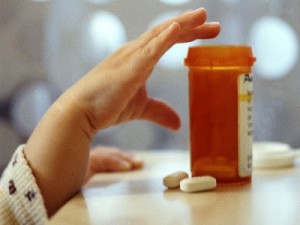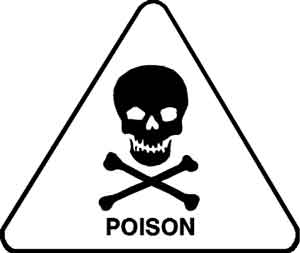We’ve seen it in movies, in TV shows. We’ve read about it in books and novels. We’ve even heard of it happening to a friend of a friend or even somebody close to us. Poison and the act of poisoning fascinates the imagination and the mere word conjures up images of deadly snakes, assassins in the dark and the inevitable doom for those who suffer it.
What may perhaps escape the notice of the common man is that poisons exist all around us, contained within the most innocent of containers and poisoning can come from merely picking up the wrong jar. To prevent this most horrific of fates from happening, we take great pains to ensure that our children do not have access to these poisons (a more difficult task than imagined, considering the tenacity of children) and we sequester these materials to the most remote corners of our homes.
The gaping weakness in many of our efforts to address accidental poisonings is the lack of awareness regarding how to respond when someone is poisoned.
To begin, how do you know if someone has been poisoned?
Look around the victim. There may be empty bottles or spilled liquids around or perhaps even scattered pills and empty medication bottles nearby.
The victim may also exhibit some signs that may indicate poisoning. Some poisons will cause burns or redness around the point of contact such as the lips and mouth. There may be signs of vomiting around the patient or unknown stains and odours on the victim’s body and clothing. Some victims will also have the smell of chemicals such as gasoline or paint thinner on their breath.
Some of the following symptoms exhibited by victims may also raise the suspicion of poisoning. In many poisoning cases, the victims are confused or drowsy while in others, the victims may be agitated or uncontrollably restless. Some victims present with seizures as well while many others exhibit difficulty in breathing. In more severe cases, the victim may have stopped breathing all together.
A good list of poisoning symptoms can also be found at the United Kingdom’s National Health Service page on poisoning:(http://www.nhs.uk/Conditions/Poisoning/Pages/Symptoms.aspx).
So what should you do, should you chance upon this unfortunate scene?
A good first step would be to contact emergency services, especially if the symptoms mentioned above are observed.
The following steps can then be taken:
- Remove the remaining poison from the victim’s mouth if it was swallowed but be careful if you suspect a corrosive agent was consumed.
- Do not at any time attempt to get the victim to vomit up the poison ingested. This will often cause more harm than good to the victim.
- If you suspect the victim was poisoned by gases or fumes, immediately remove them to an open area with fresh air.
- If the poison has spilled onto the victim’s skin, clothing or eyes and ears, remove the clothing and wash off the remaining poisons. You can do so by flushing the eyes and ears gently with lukewarm water or the body by using a shower for 20 minutes until emergency help arrives.
- Should you find the victim not breathing, CPR should be started if you are familiar with it.
- Lastly and very importantly, once help arrives or when you are about to send the victim to the hospital, remember to always bring along the containers which you suspect originally held the poison. Doing so may assist the medical staff in identifying more accurately the nature of the poison and prescribe more effective treatments for the victim.
In summary, poisonous materials should be clearly identified and kept separate from common household items. Family members should also be taught how to respond should poisonings occur. By employing this two-pronged approach, we simultaneously decrease the risk of accidental poisonings while increasing the chances of survivability for the victims.
Mr. Mark Cheong is a pharmacist currently working in Kuala Lumpur. His research interests lie in the implementation strategies of public health measures. Find out more about him at The Team page.
References
- Poisoning First Aid. www.redcross.org
- Poisoning First Aid. www.mayoclinic.com
- Symptoms of Poisoning. www.nhs.uk
[This article belongs to The Malaysian Medical Gazette. Any republication (online or offline) without written permission from The Malaysian Medical Gazette is prohibited.]


